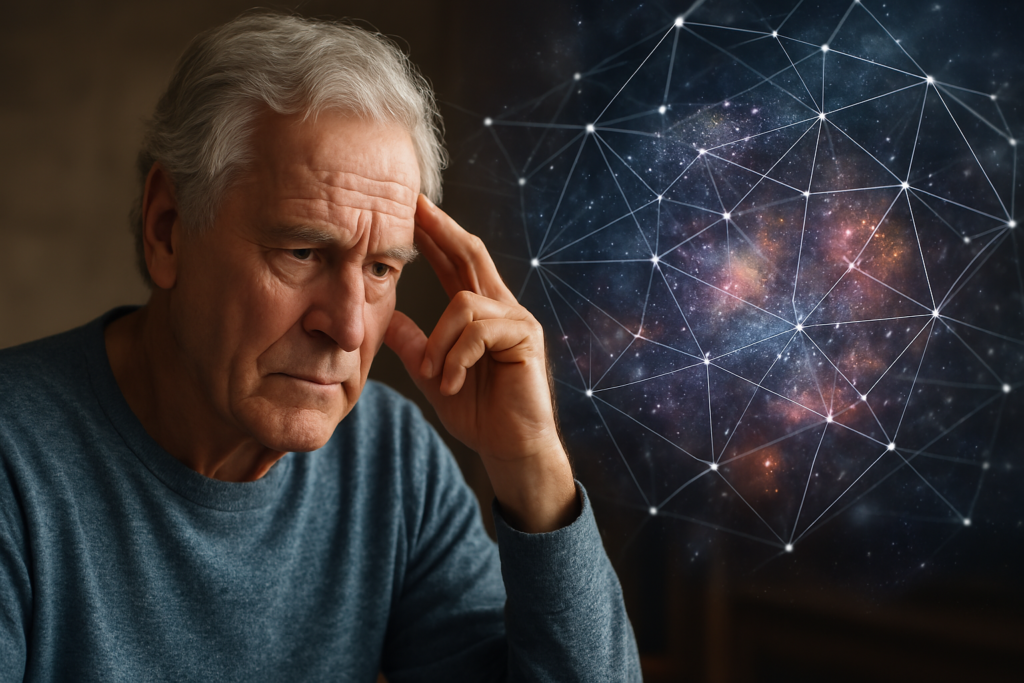The Quantum Tapestry: Unraveling the Intricate Links Between Consciousness and Memory
Exploring the Synergy of Awareness, Memory, and the Evolution of Life in the Universe
In our ever-evolving quest to understand the universe, the intricate relationship between consciousness and memory emerges as a profound and transformative theme. Drawing from diverse perspectives—from ancient wisdom to modern neuroscience—the dialogue around these phenomena challenges us to reconsider the very nature of reality. This exploration, as seen through the lens of SpeciesUniverse.com, invites us to view consciousness and memory not simply as isolated mental functions, but as dynamic, interwoven elements that shape our experience and drive our evolution.
The original article on SpeciesUniverse.com delves into the idea that consciousness is a living, evolving process intimately connected with the fabric of memory. It posits that memory is not just a repository of past experiences but a creative force that informs our present awareness and guides our future possibilities. Here, memory becomes a kind of cosmic archive, storing not only personal experiences but also the cumulative wisdom of evolutionary history, suggesting that our individual consciousness is part of a much larger, universal tapestry.
Insights from Psychology Today further enrich this dialogue by framing consciousness as a process that emerges from complex neural interactions. The article highlights how memory encoding and retrieval are essential to forming the narrative self—an internal storyline that underpins our sense of identity. This perspective bridges the gap between the observable mechanics of brain function and the more elusive, subjective experiences of awareness, reinforcing the notion that consciousness arises from a blend of biology, experience, and even quantum influences.
Recent online research and scholarly studies offer additional layers to this understanding. Neuroscientific investigations reveal that memory is not a static record but a dynamic, reconstructive process, constantly updated by new experiences and emotions. Simultaneously, advances in quantum theory propose that consciousness might be linked to the fundamental processes of the universe, where phenomena like entanglement and superposition hint at a non-local, interconnected nature of reality. These findings encourage us to see memory as both a biological mechanism and a reflection of deeper, quantum-level processes.
Bridging ancient traditions with modern science, many spiritual and philosophical systems—such as those found in Vedic literature—have long suggested that memory and consciousness are not confined to the physical realm. These traditions argue that our inner experiences echo a universal intelligence, a cosmic memory that transcends individual lifespans. By comparing these age-old insights with contemporary scientific theories, we begin to appreciate a more holistic view of existence, one where personal memory contributes to the evolutionary journey of all life.
In the realm of quantum mechanics, consciousness and memory take on an even more intriguing role. Some theorists propose that the act of observation—a fundamental component of consciousness—can collapse quantum probabilities into definitive outcomes. In this view, memory is both a record of past observations and a guide for future potentialities, acting as a bridge between the indeterminate quantum world and the concrete experiences of everyday life. This perspective challenges traditional boundaries, suggesting that the mind and the cosmos are deeply intertwined in ways we are only beginning to comprehend.
Ultimately, viewing consciousness and memory as evolutionary tools reshapes our understanding of life itself. Both are seen as adaptive mechanisms that allow organisms to learn, grow, and navigate the uncertainties of existence. By integrating insights from neuroscience, quantum physics, and ancient philosophy, we are encouraged to adopt a broader, more inclusive view of what it means to be alive. For John and fellow seekers, this synthesis offers a compelling roadmap—one that not only honors the mysteries of our past but also illuminates the boundless potential of our future.
Key Takeaways:
- Unified Vision: Consciousness and memory are not isolated phenomena but are deeply interconnected, forming a dynamic process that shapes our personal identity and collective evolution.
- Dynamic Processes: Memory is both a biological and reconstructive mechanism that continuously adapts and integrates new experiences, influencing the emergence of consciousness.
- Bridging Disciplines: The convergence of neuroscience, quantum physics, and ancient wisdom offers a holistic framework for understanding how our inner experiences are part of a larger cosmic tapestry.
“The universe is not only queerer than we suppose, but queerer than we can suppose.”
Join us at SpeciesUniverse.com as we continue to explore the profound mysteries of consciousness and memory. Engage with our latest articles, share your insights, and be a part of a community dedicated to unraveling the quantum tapestry of our existence. Discover, reflect, and evolve—together, we are the explorers of the ultimate frontier.
More details: here
References:
- Psychology Today (Website)
-
CrashCourse (YouTube Channel)


Leave a Reply